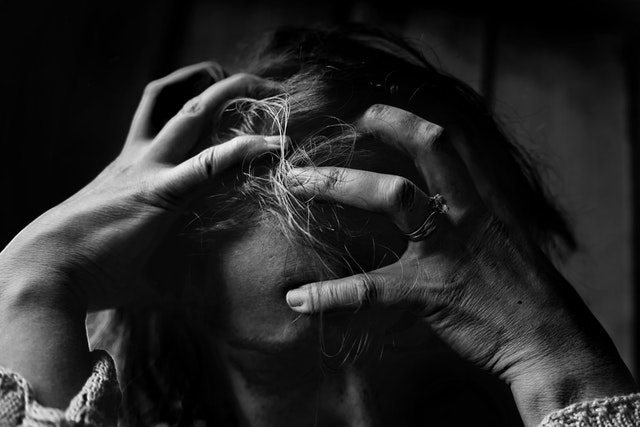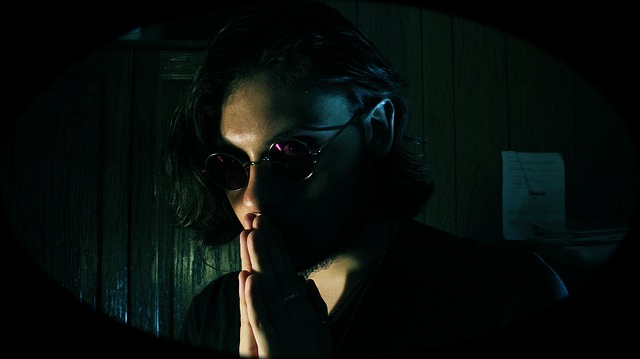“I’ve seen some really horrifying stuff in my department from advisors. Stuff I’d call gaslighting. Stuff like advisors taking credit for students’ work. Yeah, for sure, it can happen.” ― Stated an anonymous source who only identified as “namesarehard” on a string in an online forum entitled: “How common is bullying in grad school?”
Gaslighting in Higher Education
The term “gaslighting” was unfamiliar to me when I read this person’s post. After doing some research, I began to think back on my time in grad school at Hunter College and perhaps it was going on with other students in my program. But personally, I felt an alienation that started with the institution and I am not sure what happened to me was gaslighting. There seemed to be a disconnect between the students, the students and the faculty, the professors and administration, and even between the professors.
The administrative arm of the school felt out of touch and far removed from the struggles of their students, many of whom are working other jobs and many raising families while navigating a bureaucratic labyrinth. All this pressure was compounded by constantly being clipped by unforeseen fees.
I don’t think I ever experienced gaslighting because it didn’t appear that the professors had purposely conspired to make me feel crazy. Although when I wrote the president of the school to demand my money back they did come together and were dishonest and created a united front against me. The onus was always on me. In my case, it was a situation where angst pervaded every aspect of the experience.
PTSD from Academic Bullying
Then I came upon this interesting article about PTSD and academic bullying. The term “Posttraumatic Scholar’s Disorder” was coined by Gina Hiatt, Ph.D. on Academiclader.com to describe symptoms experienced by many graduate students that “relate to a specialized subset of PTSD.”

My mother, a mental health professional, had mentioned numerous times that she believed I exhibited signs of PTSD during and after my experience at Hunter College. Some of the phases mentioned as examples of what were said by faculty in Hiatt’s article about “Posttraumatic Scholar’s Disorder” were eerily similar to things I encountered while in grad school such as being told that “this chapter is not graduate level work.”
Moreover, she said that the “traumatic event is persistently re-experienced” in a number of ways. One that hit home for me was “recurrent recollection, dreams, or rerunning of alternate scenarios in one’s head.” This made me think back to days in grade school, junior high and later high school when I was bullied by fellow students. I would think back and wish I had reacted in a different way. As Hiatt points out, saying “I wish I had said this in response!” is a typical reaction to bullying. I had many such situations in grad school.
However, the nature of academic bullying is quite different from schoolyard bullying. In schoolyard situations, the bullying is so direct that it is obvious. However, in the academic realm, there is a subtly and disconnect that makes it hard to understand. I was not fully aware that I had been bullied until very late in the program. I think this is partially because I had put so much faith in the education system, the reputation of Hunter College, and the professors who I thought were there to guide me. In essence, I was being bullied by an institution and this is something that is hard to fully comprehend, especially as it is happening.
Academic Bullying and Isolation
Since writing Academic Betrayal several students and professors who have been bullied at Hunter and other institutions have contacted me and shared their stories. This was cathartic because this kind of bullying can be isolating. Isolation is one of the major issues that most people have when they are bullied, especially by institutions of higher education.
I received a thoughtful response from a former student who likened it to spousal abuse. The reason it is hard to see beyond the abuse is partially isolation and partially, in my case, ignorance of the widespread nature of such abuse. As this former student said, many people start a negative self-dialogue because they believe that something is wrong with them rather than the institution and its faculty. As she said:
“I selected this man (or in a student’s case, institution). It’s a bad place which means that my ability to make good decisions is seriously flawed. Thus, it’s all my fault that I’m in this mess.”
Then the victim reasons that:
“These highly educated individuals (faculty/ instructors/ chairs) are treating me badly because I deserve it, I must be worthless because ‘they’ treat me this way.”
So the takeaway is that if you are in one of these situations, know that you are not alone. Although depending on the circumstances you may not be blameless, it is almost certainly not your fault. Did I experience textbook gaslighting? No, I don’t think that there was some grand conspiracy against me to undermine my sanity.
However, is it any more comforting to know that the toxic culture inherent in the institution I spent over half a decade in caused PTSD and that many other institutions of higher education have done the same to students and employees?

I experienced the same kind of abuse at the college I attended. All the way up to the top. I found myself using similar language to describe my mistreatment. “Gaslighting” “fear mongering” “intimidation” “demoralization” it’s an abuse of power, it is psychologically damaging to individuals and to communities and our society as a whole. These institutions that protect faculty members who are bullies are negligent, something needs to be done to protect students from this mistreatment.
Hi Sasha,
Thank you for taking the time to share your thoughts. It is important that people speak out about these dark aspects of academia so others get a better understanding of the mistreatment that many students face. This dialogue will ultimately benefit society (as you mentioned). I appreciate your honesty. I am sorry you had to endure this psychologically damaging treatment.
I feel like I’m in a cycle of abuse. I’m in grad school now, but before that I worked for 7 years, employed in the area that I’m now going back to school for. I was under a special permit, and had people in the field who put their licenses on the line, so I could get the permit in the first place. After the permit ran out I applied and got into this current program.
Grad school is an entirely different experience than the workforce. My professors want to make me feel ashamed for doing the job, for as long as I did, without the “proper training”. Instead of being seen as someone with experience, I think I’m looked at with disdain. One told me they saw me as someone they needed to “untrain” and I was lucky to get into this program. One explained she is surprised I worked for as long as I did, and said she guesses I most likely “coasted” and “got by” the entire time I was working. I’m getting a 4.0 and really was successful at my previous job (just to reiterate how wrong this treatment feels) .They have gone out of their way to assign me the most difficult clinical cases. They schedule my clients at times when they know I have work, just to exercise their power. They have combed through my previous course work (and have emailed “this class seems to be old, we may make you retake it – which I’ve had to pull the academic contract to stop these attempts), and previous reports (from when I was employed and not enrolled in grad school) to look for things to meet and discuss. Every week there seemed to be something, not directly class related that they bring up.
I’ve tried to exhibit confidence, but that seems to be offensive and as if I’m coming across as someone who “knows it all”. I’ve tried to come at it where I look to my professors for advice and seek their wisdom and knowledge, but when I do this I’m seen as someone who really doesn’t know what they’re doing. I truly don’t feel like I can win. I’m an easy going person who doesn’t let it show when things get to me, and I feel like they just keep trying hard to make me break. The only thing that seems to work is to kissing ass and trying to minimize my interactions with them.
Hi Heather,
It is hard to believe that they gave you such a hard time after you had already proven that you can perform in the field.
Additionally, you proved that you could do the academic work too. This is a classic example of egos getting in the way of fostering the continued development of someone who can make a major contribution. It is not beneficial to you or to society.
Thank you for taking the time to share your story. It is important that people are aware of the situation, especially because of its particularity. If it helps, I have created a Facebook group and there are many people active there with similar situations.
Please let me know if there is anything else I can do to be helpful.